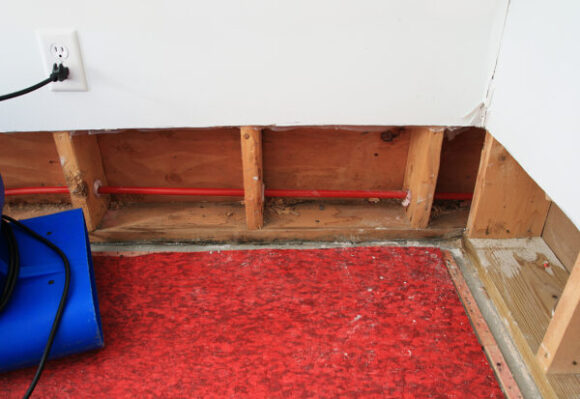When Florida lawmakers approved Senate Bill 76 in 2021, requiring a 10-day notice before suits are filed against insurers, it was seen as a big step in stemming what had become a flood of claims litigation.
Since then, questions have lingered about when the pre-suit notice applies: Does the policy date or the claims date or the lawsuit date govern? This month, the state’s 6th District Court of Appeal provided an answer, albeit one that conflicts with another recent appellate decision. The court found that a homeowner did not need to provide the notice if the policy pre-dates the law, even if the suit came after the law was adopted.
In Rebecca Hughes vs. Universal Property & Casualty Insurance Co., the appeals court reversed a Collier County Circuit Court decision that had found in favor of Universal and had dismissed Hughes’ 2021 claims lawsuit.
“Florida Supreme Court precedent requires us to hold that section 627.70152 (SB 76) does not apply retroactively to insurance policies entered into before the statute’s effective date, both because the statute does not include clear evidence of intent for the statute to apply retroactively and because the statute is substantive and cannot constitutionally be applied retroactively,” the 6th DCA judges wrote in the Nov. 22 per curiam opinion. “Accordingly, we reverse the trial court’s order granting the Insurance Company’s motion to dismiss and remand this case to the trial court for further proceedings consistent with this opinion.”

The homeowner’s lawyer in the case called it a win for policyholders, some of whom already face multiple hurdles in trying to collect on claims and lawsuits against their insurers.
“This was a very well-reasoned opinion,” said attorney Matthew Danahy, of Tampa.
The 6th DCA noted that the ruling differs sharply from a decision by Florida’s 4th District Court of Appeal, handed down earlier this year in another Universal case. The 6th District court asked the Florida Supreme Court to settle the issue. The high court could now decide on its own to take up the certified question but it may decline to consider it since relatively few claims that were filed before the 2021 law took effect are still pending, said insurance defense attorney Josh Beck, who is not associated with the case.
The appellate court quoted from a number of state court decisions issued through the years, but agreed with the homeowner and relied heavily on the often-cited 2010 decision known as Menendez vs. Progressive Express Insurance. That high court ruling essentially found that an auto insurance law was a substantive change, could not be applied retroactively, and that courts must look at the date the policy was inked, not the date the suit was filed.
The Legislature, when it approved Senate Bill 76, made no mention of the law being retroactive, although lawmakers know how to require that, judging from the wording of other Florida laws, the appeals court said.
Universal’s attorneys had argued that the notice-of-intent law was retroactive because its wording notes that it applies to “all suits arising under a residential or commercial property insurance policy.” But the judges felt that section of the law referred only to the type of claim, not when the statute should apply.
The judges also took issue with their brethren at the 4th DCA and the conflicting decision in Cole vs. Universal Property & Casualty. In that opinion, handed down in May, the 4th District Court looked at retroactively differently and noted that, “If the legislature had intended to limit this pre-suit notice provision to policies issued after the statute’s effective date, the legislature would have included language stating so.”

The 6th DCA judges said that reasoning “inverts” Supreme Court precedent that demands clear evidence of legislative intent in order for a law to reach back in time.
The original claim, for water damage to Hughes’ Naples home, was for less than $29,000. Universal offered $17,000, after the deductible and depreciation. When the dispute was not resolved, the homeowner spent about $17,000 on repairs, the complaint reads.
In other cases, appellate courts have differed on retroactivity, and the retroactivity question can cut both ways – benefitting plaintiffs in some circumstances, insurers in others. In April 2022, the 4th District held that a 2019 law that required pre-suit notices in assignments-of-benefit cases applies to AOBs signed only after the law was enacted, even when the insurance policy pre-dates the statute. In September 2022, the 2nd DCA agreed that the governing date was the day the law took effect, not the policy date.
But in other cases, courts have found that statutory limits on attorneys fees should be based on when the policy was issued, said insurance defense attorney Michael Packer, of Fort Lauderdale, who was not affiliated with the Hughes case.
Regardless of whether the Florida Supreme Court provides a definitive answer on when notices of intent are needed, the requirement has already led to a decline in claims litigation, attorneys said.

“Requiring a party to provide notice prior to filing suit, in my opinion, should not have anything to do with either the date of the loss or the date of policy inception,” Packer said. “Rather, it was put in place to reduce the amount of lawsuits and provide an expeditious procedure for the resolution of claims without litigation. In my opinion, it has been very successful. More claims are being resolved without the costs and time of litigation.”
Practically speaking, the Hughes decision and a subsequent Supreme Court opinion may have little impact. In many cases, when a policyholder files suit without a notice-of-intent, the plaintiff’s attorney will often simply correct that and refile the new suit with proper notice, Beck and Packer said.
“From my observations, the only ones that have been hurt by the statutory changes are policyholder attorneys who don’t get as much in fees when a claim is resolved without litigation,” Packer said.
Danahy, who worked in insurance defense for the first half of his career, argued that the notice of intent has become something of a technicality that favors insurers and that, in most cases, insurers have already been made aware that the dispute has reached the point of litigation. “It’s really a way for insurers to delay and deny, delay and deny on a claim that should not have required litigation in the first place,” he said.
**Article obtained from: Insurance Journal, by William Rabb, Published 11/29/2023
https://www.insurancejournal.com/news/southeast/2023/11/29/749824.htm






